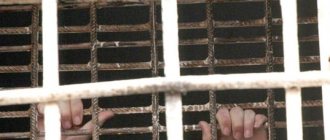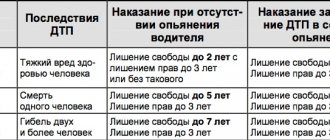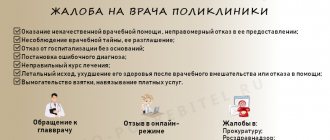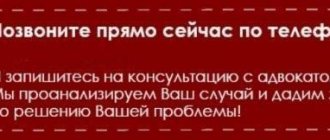I spent the first half of my nine-year term where the “first movers” were intimidated by the Discipline and Order Section (SDO). Unprecedented tales were told about her and they referred to her when it was necessary to calm down the men from the camp mass: they say, do not undermine the “back door” and do not provoke “garbage”, otherwise you will march into the dining room in formation and singing.
I spent the last few years of my journey in a close circle of SDP activists. It was not the best time, but it was the most eventful.
The discipline and order section in the “red” camp is not just a dozen or two intimidated prisoners who openly monitor other convicts and report everything to the operatives’ offices.
The SDP is the nervous system of the “red” camp. Officially, it can be called anything except its own name.
Back in 2010, the head of the Federal Penitentiary Service banned discipline and order sections in prisons and camps: there was too much lawlessness. But the SDP, of course, did not disappear, they simply changed their official name. For example, the VPD is a volunteer fire brigade.
There are also convict firefighters. They respond to training alarms and run around for the amusement of the camp in a fireman's uniform, wearing a helmet and carrying a fire extinguisher. There are at most a dozen such activists in the camp, but according to documents there could be a hundred of them. It all depends on the needs of the operatives or the camp security department, or even the “owner” himself - the head of the colony. Fake firefighters are the SDP.
The SDP curators have strings attached to every object and subject of the camp; they have everything under control. The “esdepuriki” should be the first to know about any significant event, and especially an emergency in the camp - this is their main duty. Find out and convey information to a higher-ranking activist. As if through the nervous system, the signal in an instant reaches the main nerve nodes of the SDP - the “detachment cops”, the day/night shift workers of the SDP, and then to the head of the “esdepuriks”.
The main one in the SDP is the “colony cop”. Every morning he reports to his supervisor at headquarters, be it the head of the colony or his deputy. He goes around the zone together with the administration, writes down the orders of the “big stars” and carries them out. He decides the fate of the majority of prisoners in the camp, at least he is able to significantly influence the administration’s decision regarding any of the prisoners. He sets up the entire tracking and denunciation system in the camp, down to the smallest detail.
Hell of administration
© flickr.com
The bulk of the prisoners in the “red” camp are undoubtedly suffering. Convicts in security detachments are not busy with anything and gradually become dull in front of the TV or radio with a daily program about internal regulations (IVR). In the production - work - detachments, prisoners, on the contrary, from morning to evening plow for the enterprising head of the colony in the industrial zone. However, compared to a simple activist from the SDP detachment, any other prisoner lives luxuriously.
When in a “red” camp an ordinary prisoner without connections and money ends up in the SDP system, he has little choice: to resign himself and do whatever he is told, or to suffer from bullying, and then still resign himself and do whatever he is told.
After two weeks of quarantine hell, the prisoners are distributed by the administration into units and positions. Those who, for one reason or another, end up in the SDP are unlucky. At a minimum, they will have to sleep much less than they should, and, on the contrary, get much more damage from the liver.
The first three days the neophyte teaches the camp administration. This means that in the free time between getting up and going out, the prisoner sits and, like a poem in school, teaches the names, titles and positions of all those representatives of the administration who work in the camp. It’s easy to confuse dozens of names and titles; not all prisoners know Russian well, but in the tight atmosphere of fear so skillfully created by sadistic activists, only a few fail the administration exam. Those who never learned to recite poetry at school were later severely beaten in the SDP camp.
Theoretical cramming is replaced by practice in the camp. If you look at the camp from a bird’s eye view, you can see “esdepuriks” at all intersections and key points. Each of them has a notebook in their hands and a pencil behind their ear. In the camp, SDP activists monitor everything and everyone: they record the movements of administration employees, keep time and write about the routes of those prisoners who are interested in the operas or the top of the SDP, eavesdrop on conversations and even try to recruit ordinary prisoners into their agents.
"Cop colony." 2022, penal colony IK-40, Kemerovo.
The “Esdepushnik” is obliged to know by sight all the employees of the administration, and from afar to recognize by the gait of any employee of the colony. Therefore, newcomers stand, for example, on the corner of the headquarters and spend hours looking at the “gateway” - the entrance doors to the camp. As soon as they notice an employee appearing, they immediately signal with gestures to the next “esderupik” point about thirty meters away and write down the time and code of the employee on a piece of paper. To ensure that the recordings are accurate and the communication is instantaneous and at the same time not readable by a casual observer, all signals and notes are encrypted. Each administration employee was assigned a code in the form of a number and a gesture by the top of the SDP. As soon as some deputy chief goes out on a round to the camp, news flies ahead of him: so-and-so has left headquarters and is going to the zone. The central nodes of the camp’s nervous system come into combat readiness: they hide prohibited items, spruce up the units and facilities, and prepare reports.
With the help of prisoners, the administration also monitors its own employees. At any round and during detachment planned searches, an “esdepurik” is always present and writes what was seized and from whom, what time the search was completed and how many packages with seized things were delivered to the duty room. In this way, the “owner” of the camp eliminates the possibility of corrupt connections between prisoners and employees.
The SDP also carefully monitors the prisoners, although not the entire mass, but only those who are on the pencil. Professional accountants and legally literate prisoners, impudent people and potential rebels - all those prisoners who are of some interest to the operatives are taken under special control, “on a pencil”. “Esdepuriki” is what they call them – “pencils”. Their conversations are written, their movements around the camp are written, their time to go to the toilet is written. No video cameras or smart surveillance systems are needed: prisoners monitor and report just as well, but much cheaper.
"Pencils" on a pencil
© flickr.com
They can even become “pencils” for belonging to a certain nationality: Tuvans or Buryats are mostly inclined to disobey the camp administration, and therefore they are taken under special control by operatives just because they were born different from everyone else. That is why, after studying the administration employees, “esdepuriki” are obliged to memorize all the “pencils” in order to recognize this or that professional accountant even from behind and make an appropriate entry about him in a notebook.
There can be up to a hundred activists in the SDP camp, and each of them has dozens of additional responsibilities to the PVR, each of them is loaded with something. Some monitor the administration, others specialize in “pencils,” while others are required to monitor “cohorts,” that is, a meeting of any prisoners of more than three people. Separate teams of "esdepuriks" are occupied by the industrial zone, the canteen, the headquarters, the store, the bathhouse - each has its own objects of observation and its own responsibilities. A prisoner went for a smoke break - record, threw a piece of paper past the trash can - record, talked while eating - record.
After lights out, when the entire camp freezes in an anxious sleep, the night shift gets down to business in the SDP detachment. Dozens of clerks spend hours deciphering records of the day’s events and movements, compiling reports for the colony’s “cop,” the squad’s curators, and camp operatives.
SDP monitors by day, writes by night. And every morning the head of the SDP goes to report to headquarters, where he tells his supervisor - usually the deputy head of the colony - about the events and incidents in the colony over the past day.
Suits in the zone. Zone concepts. Prison laws
In modern society, it is not customary to divide people into any groups, classes or castes. However, this rule does not apply to places of deprivation of liberty, where for many decades there has been a strict classification of convicts into unique groups (or, as they say in the zone, suits).
Prison suits
Zone suits are the division of all prisoners into unique groups that differ from each other in prison status, rights and concepts.
In absolutely any prison or colony, there is a clear distinction between all prisoners into certain groups or stripes: “thieves”, “men”, “goats” and “roosters”. There are also so-called intermediate groups, which vary depending on the specific place of deprivation of liberty. Such “intermediate” castes include “roosters”, “lowered”, “offended” and others.
The suits in the zone are fairly closed groups, and it is almost impossible to move from one caste to another.
"Authorities" of the zone
The most significant, important and honorable suit in the zone is “thieves”. This caste is the smallest, and you can’t just get into it. So, who is the “thieves”?
“Blatnye” are real, almost unlimited power in the zone. It is the members of this group who establish the unwritten rules of behavior in places of deprivation of liberty, monitor order in the zone, resolve conflict situations that arise between prisoners, and punish the “offenders” to the fullest extent of prison law.
A special group of “thieves” are the so-called thieves in law. These are recognized crime bosses. Moreover, they do not necessarily have to engage in theft. A “thief in law” is a person who has an impeccable criminal reputation, correct concepts and strictly adheres to the laws of thieves.
If we answer the question of who a “thieves” is, then we can say that this is an authority who behaves “correctly” not only in the zone, but also did not have any “jambs” in freedom.
For example, “thieves” should not serve in the army; when free, they should not hold leadership positions or work in the service sector (taxi drivers, waiters).
In Soviet times, such authorities were prohibited from having a family or being a member of any political party.
Foremost
The leader of the "thieves" is the "godfather" - a recognized criminal authority. If there is no such person in the zone, then a “supervisor” is appointed - a prisoner who performs the functions of a leader.
The “godfather” and his associates (that is, the “thieves”) have special privileges in the zone. They may not work and keep whatever they deem necessary from the common fund.
In the modern world, many “thieves” in the zone interact with the administration of the correctional institution and establish those orders that are beneficial to the leadership of the colony. In return, the “thieves” are given comfortable living conditions (they secretly receive alcohol, marijuana, telephones and other benefits). Although this does not correspond to thieves’ concepts, market relations now reign in the zone.
Who is "the man"?
“Men” are perhaps the largest and most neutral group of prisoners. It includes prisoners who received sentences for committing minor crimes. As a rule, these are completely random people in prison: having entered the zone once, they try to get free as quickly as possible and return to normal life in the wild.
The indicated suit in the zone has no authority. “Men” do not take part in showdowns, do not have the right to vote and do not interfere in the affairs of “thieves”. They do not cooperate with the prison administration, but they also do not serve the authorities of the zone.
Among the “men” there are, of course, prisoners whom the “thieves” respect and even listen to their opinions.
This group of prisoners is considered neutral and quite large. And if we talk about who a “man” is, this is the prisoner who, at the end of his sentence, will forget everything like a “bad dream” and will try not to return to the zone again.
"Goats" is...
If it is an honor to belong to the two stripes described above, then to be included in the caste of “goats” means to put yourself against the rest of the prisoners. As a rule, this suit includes those prisoners who, of their own free will (and in some cases, under duress) began to cooperate with the administration of the correctional institution.
So, if a prisoner agreed to take the position of a prison librarian or caretaker, then he automatically fell into the caste of “goats”. Convicts belonging to this suit actively cooperate with prison management, carrying out all their instructions. In this regard, the rest of the prisoners treat them as traitors.
This situation deprives the “goats” of the right to participate in prison disputes, they are not allowed to enter the “common fund”, they do not have the right to vote. Meanwhile, you can greet representatives of this suit, you can touch them and, if desired, you can communicate with them.
You wouldn't wish it on your enemy
The suits in the zone are unchanged. You cannot move from a lower caste to a more authoritative one. So, a “goat” will never become a “man” or a “thieve.” But you can get into the lowest caste.
A suit like “rooster” is a real nightmare for a prisoner. For prisoners who fall into this caste, life in the zone is not easy, to put it mildly. This group of prisoners is also called “offended”, “dismissed”, “untouchables”.
This suit includes passive homosexuals and prisoners punished by having sexual intercourse with them.
Moreover, the sexual act itself may not take place: the prisoner can simply pass the genital organ across the lips, and from that moment on he will be considered a “rooster.”
Representatives of this suit are outcasts: you cannot touch them, you cannot take anything from them.
“Roosters” use separate utensils and have a separate sleeping place (usually at the entrance to the cell). It is not customary to talk to them.
“Roosters” are prohibited from approaching other prisoners closer than three steps. They are the ones who do the dirtiest work in prison - they clean toilets and wash the parade ground.
However, when “roosters” are “consumed” (this is what they say in the zone), this is not considered any kind of defiling contact.
There is also an ominous “tradition” of making holes in plates, spoons and mugs of “roosters”. In order for a prisoner belonging to this caste to eat or drink, it is necessary to plug the holes with his fingers. And this is the most harmless humiliation of those to which the “roosters” are subjected.
Prison laws are very strict and cruel. Therefore, the slightest deviation from established norms of behavior inevitably leads to punishment. Thus, having once become a “rooster”, a person is deprived of the right to human treatment in prison and is subjected to humiliation until the end of his sentence. Not everyone can withstand this, which is why many prisoners who fall into the “rooster” caste commit suicide.
Sometimes it happens
The above-mentioned suits are available in all zones and prisons. However, some places of detention have their own specific, so-called intermediate castes.
There are especially many such castes in the zone where juvenile criminals are kept. On the “youngster”, in addition to the castes already indicated, there are such suits as:
- “forshmaki”, which includes prisoners who have committed some minor offense in the zone due to ignorance of the rules and norms of behavior;
- “devils” - that is, those prisoners who were caught stealing from their cellmates;
- “shnyri” who act as servants;
- “laundresses”, “oil presses”, “shortages” and others.
In some adult zones, unique podcasts are common. For example, “thieves”, which includes prisoners who form the “retinue” of the “thieves” (while they themselves are not criminals). Or the “scoundrels” caste, which includes “thieves” prisoners who have committed some disgusting act.
Live “according to concepts”
Whatever suit the prisoner belongs to, he is obliged to comply with Zonov’s concepts. Concepts are established standards of behavior for prisoners in places of deprivation of liberty. Strict adherence to these unwritten rules helps to avoid conflict and sometimes life-threatening situations.
Prison laws (or concepts) are very similar to the norms of life in freedom. The paradox is that often prisoners who violated the law in freedom (for example, stole), in places of deprivation of liberty strictly adhere to the “don’t steal” rule.
Zonov’s basic concepts boil down to the following: don’t “knock” and don’t steal from your own people (that is, from fellow prisoners), don’t let “words go to waste” (if you threaten someone, you must punish them; otherwise, they will punish you for chattering) .
In the zone, you cannot interfere in other people’s affairs and conversations, impose your opinion, lie and swear (since the demand for any spoken word in prison is much greater than in freedom).
You shouldn’t be greedy in prison: it’s customary to share with your fellow inmates. And, of course, you shouldn’t put yourself above others, because this can lead to dire consequences.
Strange norms
Some zones have very strange laws. This is especially true of colonies that house juvenile offenders. For example, you cannot lift anything from the floor, you cannot finish smoking a cigarette behind prisoners who are members of lower prison castes.
There are some prisons where they can let you go just because a prisoner went to the toilet and didn’t wash his hands or mended his socks.
There are also colonies in which it is customary to wash in the bathhouse with two washcloths - one to the waist, the second for everything else. A towel, which is commonly called a “waffle” towel, is considered a “checkered towel” in the zone. And it will be very bad for the prisoner who does not know this rule.
The "red" zone. Black zone
Not only the prisoners themselves are divided by color, but also the places where they are kept. All zones are divided into “black” and “red”.
“Reds” are those prisons in which rigid “cop” concepts prevail. In such prisons, interaction between prisoners and the administration of the correctional institution is strongly encouraged. Life here proceeds according to the rules of the zone leadership.
“Black” prisons (which are the majority in Russia) are those correctional institutions in which everything is based on thieves’ concepts and prison laws. Here the suits in the zone are of great importance. It is considered a waste to cooperate with the administration of such a colony.
In the “black” zones, prisoners who “knock” to the management are classified as “goats” (they are also called “red”). “Red” in the zone will never be able to live in peace, since he will be hated by all other prisoners and will be considered a traitor.
Finally
Over many decades, clear and strict rules and norms of behavior for prisoners have been formed in places of deprivation of liberty. Violation of established rules leads prisoners to punishment, which most often consists of transfer to the lowest prison caste.
And if for an ordinary law-abiding citizen such a punishment seems childish, then for the inhabitants of the zone it is the most severe and severe punishment. After all, the safe and calm serving of a sentence directly depends on what color the prisoner belongs to.
Despite the fact that modern society and worldview have introduced many innovations into prison life, there are things that still remain unchanged - these are prison castes (suits), thieves' laws and concepts.
Source: https://FB.ru/article/275164/masti-na-zone-zonovskie-ponyatiya-tyuremnyie-zakonyi
By what criteria are prisoners selected for the SDP?
© pixabay.com
By order of the operatives, the SDP can automatically receive “youngsters” upon arrival - young prisoners who, upon reaching adulthood, are transferred from institutions for juvenile delinquents to general regime camps. As a rule, the “young children” grow up to be young rebels who dream of shaking the “red” regime, so even at the reception in the “red” camps, the “thieves’ dust” is actively knocked off with batons from the youngsters and assigned to the SDP for re-education.
If a criminal prisoner arrives at the camp, whose personal file indicates a connection with the criminal world, he can also be kept in a punishment cell - “under the roof”, and after receiving the necessary statements on camera, he can be sent to live in the SDP detachment. Even if the criminal does not work, but is only among the “esdepuriks,” his biography will undoubtedly be soiled.
But in general, the population of the SDP are ordinary, frightened prisoners. They are afraid of everything. An unknown headquarters, where evil employees send prisoners in batches “to the harem.” A gloomy curator from the operations department whose offers cannot be refused. The head of the detachment, constantly demanding something. A dozen SDP activists humiliating ordinary “Esdepushniks” around the clock. The intimidated prisoners are not only not ready to defend their legal rights of detention, they are afraid to even look the employees and main activists in the eyes.
Their fear is understandable. Some of the prisoners have been on the hook since quarantine, where they wrote “candid” confessions about their love for anal and oral sex and their voluntary desire to “go to a harem.” Those who “confessed” were given female names, and the SDP detachment activists addressed them exclusively in the feminine gender.
Each squad has so-called “crackers”. Former rapists or pedophiles live among the bulk of prisoners, but do whatever they are told to do. In rare cases, there are victims of rape already in the camp itself. Blackmail and the threat of being exposed and driven into a “harem” are the most effective tools, although not the most common. Most SDP prisoners endure constant bullying and periodic beatings.
But there are also many who go to work for the SDP deliberately. With anticipation, they learn to pawn other prisoners and receive at least small privileges for this. Over time, other “esdepuriks” get the taste and, with manic pleasure, “shoot” prisoners, reporting their violations to “points”.
Someone didn’t fasten a button, someone went out onto the parade ground with their hands in their pockets, someone shot a cigarette from a neighbor - the “Esdepushniks” know that in the future this prisoner will get in the detachment’s quarters or the headquarters office without the right to an excuse. The element of power seduces them. This is how they grow, first in their own eyes, and then in the career of an SDP activist.
Of course, the majority of prisoners despise the “Esdepushniks”, and the most impudent ones do not miss the opportunity to even annoy them somehow. In some places they will throw a derogatory word at your back, and in others they can “pierce” your side with a sharpened electrode. Therefore, the administration carefully protects its “eyes and ears,” and brave prisoners now and then fly up in their offices from batons and shockers.
Who are the assholes in prison?
In the prison world there are several castes - groups of prisoners of different dignity.
There are four main castes: thieves (tramps, lads), men (the most numerous caste), goats, roosters (outcasts).
If everything is more or less clear with the thieves and peasants (persons who adhere to thieves’ traditions, working prisoners who did not join either the thieves or the goats), then who the goats are in the zone is not entirely clear.
But in life, when people often swear, they call each other assholes, but at the same time they do not mean what this word means in prison jargon.
Goat, goat, goat's face and other derivatives of the word "goat" are insulting words. But if in ordinary life a person who has been called an asshole may not react in any way to an offensive word, then in prison this spoken word may even cost the life of the one who uttered it.
If some “correct” prisoner is called a goat, then the demand from the one who called him will be great. In prison, goats are a separate caste of prisoners, belonging to which is not held in high esteem.
Who in the zone are called goats?
Goats or bitches (ssuchany) are prisoners who cooperate with the administration of the colony . These are those prisoners who agreed to accept some position, for example, to become a caretaker, a librarian, the head of a club, a zone commandant, etc.
That is, these are the people who put on the “shoals” - the armband, these are the ones who joined the crime prevention section. Goats can also be called bitches - those who agreed to cooperate with law enforcement agencies.
What does goat mean in prison slang?
A goat or a woolen suit are bastards who previously lived according to black laws, and then, either forced or of their own free will, took the right path - they began to cooperate with the administration.
But most people become assholes for one simple reason - to quickly be released, to receive parole.
The administration of the colony calls the goats “active”, activists, people who are firmly on the path of correction. Of course, the other prisoners treat the goats badly.
People become goats in different ways: some of their own free will, some are intimidated, others are forced . They greet the goats in the zone and communicate with them, but they are not allowed into the “common fund”.
There is a legend in prison camps that supposedly there is a secret order: in the event of war, all the goats must be shot as potential traitors.
But this is just a legend. Although during the Second World War, German punitive detachments were composed not of army soldiers, but of policemen.
Who is a goat according to concepts?
Goats (another name is red) are individuals who openly cooperate with the administration. Those prisoners who are members of various amateur performance sections, discipline and order sections in a correctional institution are also considered goats .
The goats cooperate with the administration for banal relief. So, for their work they can receive a can of condensed milk, sausage, some can even count on parole for particularly good work.
There is a reason why there is such a common phrase: “You will answer for a goat” in the zone: if you call a prisoner a goat, which he is not, then this will be considered a grave crime.
For such a clause, the convict will receive a quick “response” - a blow to the face (at best), maybe even stabbed to death. If a prisoner who has been called a goat does not answer the offender, then he will automatically be assigned to the “goat” suit.
Many people think that the meaning of the word “goat” is the same as informer . Such prisoners notify the administration about some case or event.
However, it is not. None of the men or thieves will carry on a conversation in the presence of a goat. And the “bitches” stay apart.
Don't get there
© Mikhail Metzel/TASS
It is difficult, but possible, to avoid working in the SDP. The rare few who are not ready to put up with the need for denunciations break glass in the detachment and cut their wrists or jump out of the window onto the asphalt. Some even decide to rip their own throat open during a short meeting with their mother, just so that they can return him after the medical unit, even to a punishment cell, but no longer to the SDP.
Most of the spirited prisoners after the medical unit, of course, change their place of stay, sometimes even to a punishment cell until the end of their sentence. But the administration also makes cynical decisions: even at night the prisoner was running around the camp shouting “help, they’re killing him!”, and in the morning, stitched up and treated, he was returned from the medical unit to the same SDP detachment from whose torture he escaped. So, many stop even thinking about the possibility of breaking away from the detachment.
The conveyor belt of the “red” camps releases from its “gateways” two types of stamped products: citizens who agree with everything and professional informants. Some will obediently do everything that people in uniform tell them, others will inform them just as professionally. There is enough work for the SDP on both sides of the fence of the “red” camps.








